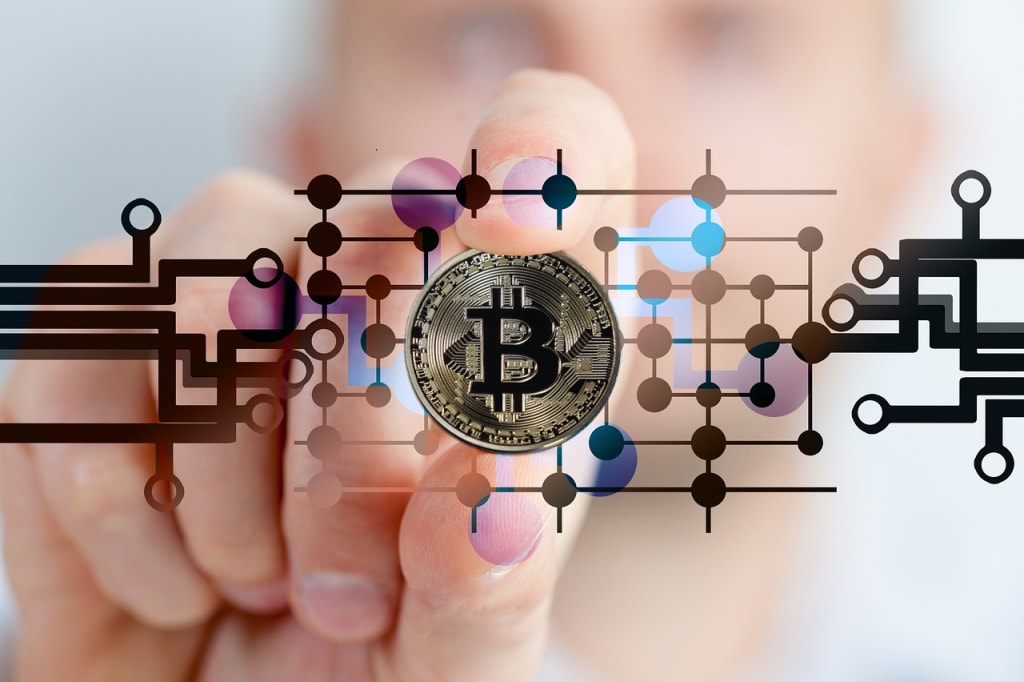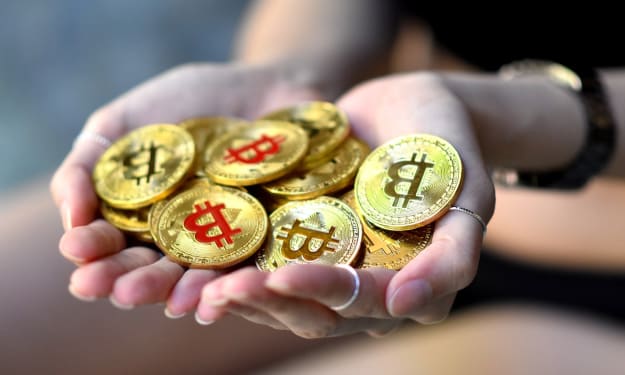The Benefits of Decentralized Finance (DeFi) and How It's Changing the Game
Unlocking the Potential of Decentralized Financial Systems for a Better Future

Decentralized finance, or DeFi, is a new and rapidly growing sector of the finance industry that is changing the game by providing individuals and businesses with more control, transparency, and security when it comes to their financial transactions. DeFi operates on decentralized networks, such as blockchain, and utilizes smart contracts to automate and secure financial transactions. In this blog post, we'll explore the benefits of DeFi and how it's changing the financial industry for the better.
One of the key benefits of DeFi is that it provides individuals and businesses with greater control over their financial transactions. Traditional finance is often controlled by centralized intermediaries, such as banks, which can be slow, expensive, and lack transparency. DeFi, on the other hand, operates on decentralized networks that are open, transparent, and secure, allowing individuals and businesses to take control of their financial transactions without relying on intermediaries. This makes it easier to access financial services, manage your money, and make secure transactions.
Another key benefit of DeFi is that it is more secure and trustworthy than traditional finance. Decentralized networks, such as blockchain, provide a secure and tamper-proof ledger of transactions that is maintained by a network of computers. This makes it virtually impossible for anyone to manipulate or corrupt the data, reducing the risk of fraud and ensuring that every transaction is processed accurately. Additionally, DeFi operates on smart contracts, which are self-executing contracts that automatically enforce the terms of a transaction once it has been executed. This provides a high level of security and ensures that transactions are processed accurately and automatically.
DeFi is also making it easier for individuals and businesses to access financial services and products. Traditional finance can be inaccessible for many people, especially those in developing countries or those who lack access to traditional financial institutions, on the other hand, operates on decentralized networks that are accessible to anyone with an internet connection, making it easier for people to access financial services and manage their money. Additionally, DeFi is providing new and innovative financial products, such as decentralized exchanges and stablecoins, that are changing the way we think about finance.
DeFi is also providing new opportunities for investment and wealth generation. Traditional finance is often limited by high fees, red tape, and a lack of investment options. DeFi, on the other hand, provides a wider range of investment opportunities, including decentralized exchanges, lending platforms, and yield-generating protocols, that are accessible to anyone with an internet connection. This is making it easier for people to invest their money and generate wealth, regardless of their financial background or experience.
In conclusion, DeFi is changing the financial industry for the better by providing individuals and businesses with greater control, transparency, and security when it comes to their financial transactions. DeFi operates on decentralized networks that are open, transparent, and secure, providing a high level of security and trust. DeFi is also making it easier for people to access financial services, manage their money, and invest their money, providing new opportunities for wealth generation and financial empowerment. As DeFi continues to grow and evolve, it is important to stay informed and understand its potential benefits and challenges, so that you can take advantage of the opportunities it provides and secure your financial future.
In addition to the benefits already discussed, DeFi is also offering new solutions for financial inclusivity and equality. Financial inclusivity refers to the idea that everyone should have access to the same financial services and opportunities, regardless of their location, income, or social status. DeFi, with its decentralized and accessible nature, is helping to level the playing field by providing financial services and opportunities to people who have been previously excluded from the traditional financial system.
For example, in many developing countries, access to traditional banking services is limited, and people often resort to informal financial services, such as loan sharks, which can be costly and dangerous. DeFi provides an alternative, allowing people in these regions to access financial services and products, such as loans and insurance, through decentralized platforms. This can help to reduce poverty and improve economic growth in these regions.
DeFi is also helping to promote financial equality by providing new investment opportunities for people who have been previously excluded from traditional investment markets. For example, many people in developing countries are unable to invest in traditional markets due to high fees, red tape, and a lack of investment options. DeFi, with its low fees and accessible investment options, is making it easier for these people to invest their money and generate wealth.
Moreover, DeFi is providing a new platform for financial innovation and experimentation. The decentralized and open nature of DeFi allows developers and entrepreneurs to create and launch new financial products and services, which can be rapidly adopted and scaled. This is leading to the creation of new financial products and services, such as decentralized exchanges, lending platforms, and yield-generating protocols, that are changing the way we think about finance.
However, while DeFi is providing many benefits and opportunities, it is important to be aware of the potential risks and challenges. DeFi operates in a largely unregulated environment, and many DeFi platforms are still in their early stages of development. As a result, there is a risk of platform failure, hacking, and other security threats. It is also important to be aware of the potential for regulatory changes, as governments around the world are beginning to take an interest in DeFi and its potential impact on the financial industry.
In conclusion, DeFi is changing the financial industry by providing individuals and businesses with greater control, transparency, and security when it comes to their financial transactions. DeFi is also making it easier for people to access financial services, manage their money, and invest their money, providing new opportunities for wealth generation and financial empowerment. However, it is important to be aware of the potential risks and challenges, and to stay informed as DeFi continues to grow and evolve. Whether you are an individual or a business, understanding the benefits and potential risks of DeFi is essential for securing your financial future.
About the Creator
nikhil9711
I am talented freelancer with a passion for creativity and problem-solving. With a background in i have honed his skills to offer top-notch solutions for clients across a range of industries
Enjoyed the story? Support the Creator.
Subscribe for free to receive all their stories in your feed. You could also pledge your support or give them a one-off tip, letting them know you appreciate their work.






Comments
There are no comments for this story
Be the first to respond and start the conversation.